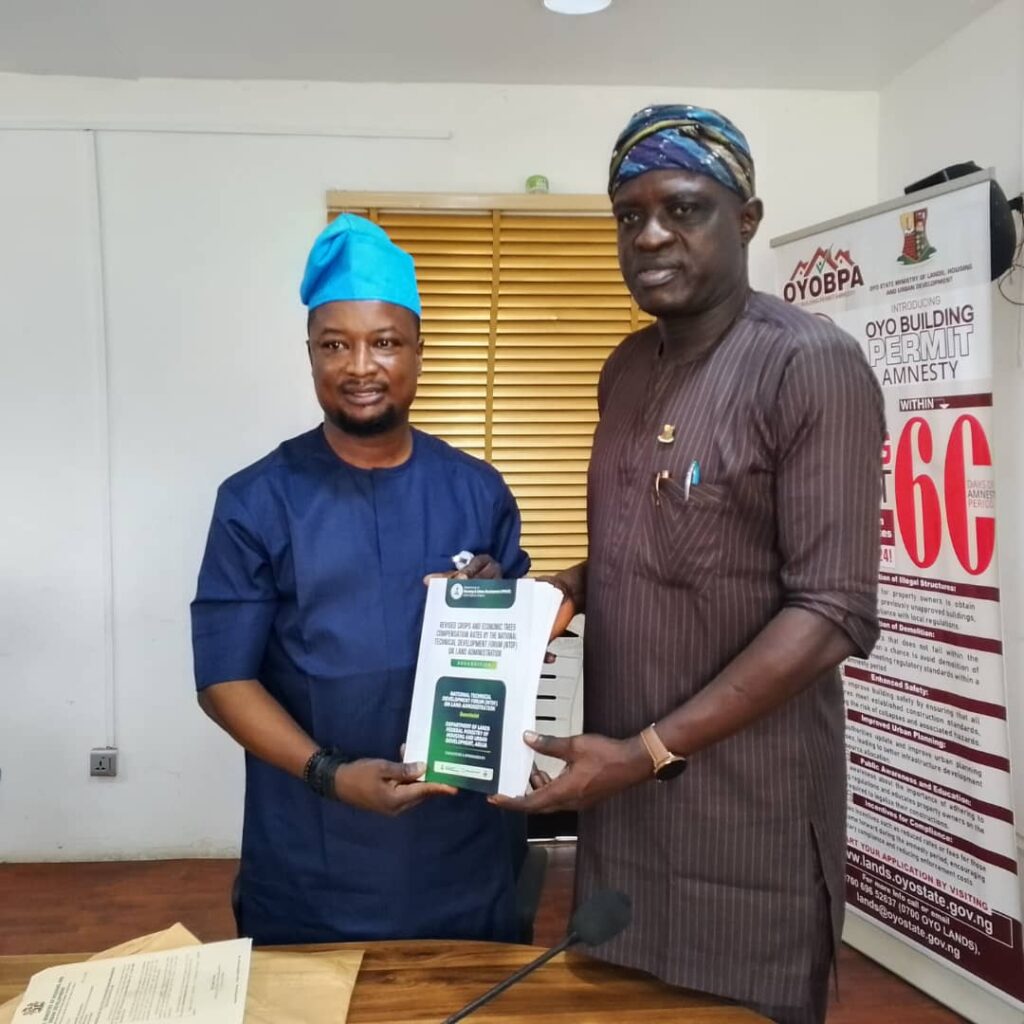
The Oyo State Government yesterday Wednesday 6th August received the revised compensation rates on crops and economic trees for landowners affected by projects to ensure fairness and justice. The Commissioner for Lands, Housing, and Urban Development, Mr. Williams Akin Funmilayo received the document from the representative of federal government, Mr. Adelani Israel. This information was released by the Oyo Commissioner of Information and Orientation, Prince Dotun Oyelade.
It would be recalled that the Federal Government introduced the revised rates as due compensation for individuals affected during land acquisitions for public projects, TheMediaGood Newspaper can report.
The Commissioner, Williams Akin-funmilayo expressed appreciation for the initiative, stating that it will significantly enhance the state’s capacity for effective land administration. He said, “Land acquisition is a critical component of land management, and it must be accompanied by fair compensation.”
He added, “This review provides a more just framework for compensating project-affected persons.”
Mr. Akin-funmilayo also noted that the State Government had earlier submitted its recommendations to the Federal Government for harmonization, and commended Governor Seyi Makinde for supporting the initiative.
“This development will go a long way in strengthening our land management processes and ensuring that those who make sacrifices for public development are adequately compensated”, he posited.
He said that the reviewed rates are expected to guide future land acquisition exercises and promote transparency, fairness, and accountability in compensation practices across the state.
Earlier, the representative of the Federal Ministry of the Federal Ministry of Housing and Urban Development, Mr. Adelani Israel, emphasized the importance of the review, noting that the existing compensation framework which was established in 2008, is outdated and no longer reflects current economic realities or international best practices.